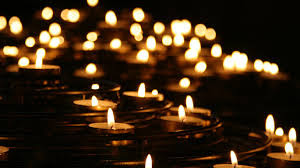This Quarter, I am teaching at the University of California, Santa Cruz. The course I am teaching is called "Cities, Urban Planning, And The Law." Almost fifty students are taking the class, which is being held in Stevenson 175. That's a pretty big classroom, and it has to be, since the class that meets in Stevenson 175 just before my class shows up has an enrollment of sixty-something. That course is called "Death and Dying."
I have written some things about death and dying in this blog, and I remember that one of my blog postings was titled, "Let's Be Saints." In the posting in which I discussed that "Let's Be Saints" idea, I cited to a Catholic nun, Sister Theresa Aletheia, quoting her as follows: "We try to suppress the thought of death, or escape it, or run away from
it because we think that's where we'll find happiness, but it's actually
in facing the darkest realities of life that we find light in them."
This way of thinking about death is captured in a Latin phrase: "Memento Mori," which means, "remember we must die." Remembering that we must die is supposed to help us live well, not paralyze us with fear, and I do think it's pretty good advice. Since that "Let's Be Saints" posting, I have learned that "Facing Up To Nartsuk" is the way that this advice is communicated in Inuit communities. I am not sure that "Memento Mori" is exactly the same message that students in the Death and Dying class are hearing, but I bet that's part of it.
I was bemused, incidentally, as I reviewed a copy of the Syllabus for the "Death and Dying" course. A copy of the Syllabus was left behind, as that class left the room, and as my class entered. In the Syllabus, the course is introduced to the enrolled students as follows, and this course description made me smile:
It has been surveyed that public speaking and death are among our top five greatest fears in life. In this course, you will be facing both!
Getting students to speak out in class is, undeniably, not always easy. Making student presentations a requirement - and I do the same thing in my class - is almost as hard as handing out that "Memento Mori" assignment!
Not required in my class - but definitely required in the "Death and Dying" course - is a requirement that each student in the class prepare a "lossography." If you are asking yourself what this might be (I certainly asked myself that question), Merriam Webster tells you that the word doesn't exist. That's not definitive! An internet search finds a number of examples of how "lossography" assignments are now being provided to college students:
Students may have a greater willingness to discuss issues of death and loss through written assignments; however, there is little guidance for instructors regarding how to manage these sensitive assignments, nor how students benefit from them. The authors implemented and evaluated a "lossography" assignment in an undergraduate thanatology course in which students wrote about their losses and anonymously shared these narratives with their classmates. Although many themes of loss emerged, the most frequently reported significant loss was death of a grandparent. Additionally, most significant losses occurred in childhood/adolescence. Prominent themes related to student learning included gaining self-awareness, knowledge about grief responses, and compassion for others. Students (N = 64) also completed a survey reflecting on their course learning. Of all aspects of course delivery, 44% identified the lossography as the most beneficial, whereas 97% recommended this assignment for future students.
I do think that addressing issues of death and loss is worthwhile. Much better than never addressing them. I would only say, though, that my idea of "Memento Mori" is not that we should, mostly, acknowledge and accept the losses we experience (inevitable in a world in which we remember that we must die). In fact, I believe that the "Memento Mori" assignment is mainly not to emphasize death and loss, but to raise our awareness of the gift and asset of life itself. In remembering that we must die, we will, inevitably, also realize that we are not dead yet!
That fact is our glory. Here we are, with the gift of life in our hands!
Remember we must die. "Memento Mori." In other words, don't waste a precious moment of this life we now have, this inestimable and mysterious gift.
Loss is not what defines our life, so as we remember that we must die, we remember the more important thing, as well. Remembering that we are alive, and truly understanding what that means, is the antidote to all our fearful worries and regrets.
Alive, now.
Our losses in the past.
Now is our chance to live, and love, and change the world!
Image Credit:
https://brewminate.com/seeking-environmental-knowledge-from-an-inuit-shaman/


No comments:
Post a Comment
Thanks for your comment!